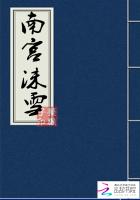The title of King of Prussia assumed by the Elector of Brandenburg was recognised by the Pope; peace was made with Portugal by granting to the crown rights of patronage over bishoprics and abbeys (1740), and to set the seal on this reconciliation the title of /Rex Fidelissimus/was bestowed on the King of Portugal. With the court of Turin the Pope had still greater difficulties, but an agreement was arrived at, whereby the king was to have the right of nomination to ecclesiastical benefices; the foreign bishops having jurisdiction in the territory of Savoy were to appoint vicars-general for the administration of these portions of their dioceses, and the administrator of vacant benefices appointed by the king was to act as the deputy of the Pope (1741).
With Spain a formal concordat was concluded in 1753. The dispute in Naples regarding the Sicilian Monarchy was settled by the appointment of a mixed tribunal composed of laymen and clerics, presided over by a cleric for the settlement of ecclesiastical affairs. The Pope's decision that only those who refused publicly to accept the papal condemnation of Jansenism were to be excluded from the sacraments helped to ease considerably the situation in France. He condemned the Freemasons (1751), and reduced the number of holidays for Spain in 1742 and for Austria, Tuscany, and Naples in 1748.
His successor Clement XIII. (1758-69) found himself in a peculiarly unhappy position. Despite the friendly policy adopted by Benedict XIV.
towards the civil rulers, or, as some would say, as a result of the concessions that he made, their demands became still more exorbitant.
The Rationalists, liberal Catholics, Jansenists, and Freemasons united their forces for a grand attack upon the Society of Jesus, the suppression of which they were determined to secure. Already rumblings of the storm had been heard before the death of Benedict XIV. His successor, who had the highest admiration for the Jesuits, stood manfully by the Society, and refused to yield to the threats of the Bourbon rulers thirsting for its destruction. His sudden death was attributed not without good reason to the ultimatum, demanding the immediate suppression of the Jesuits, addressed to him by the ambassadors of France, Spain, and Naples.
In the conclave the cardinals were divided into two parties, the /Zelanti/ who stood for resistance to the demands of the civil rulers, and the moderate men who supported the policy of conciliation. The representatives of France, Spain, Portugal, and Naples, left no stone unturned to prevent the election of a /Zelanti/, and the veto was used with such effect that the choice of the cardinals was at last limited to only three or four. Threats were made that, if a candidate was elected against the wishes of the Bourbons, Rome might be occupied by foreign troops, and obedience might be refused to the new Pope. In the end a Franciscan friar, Cardinal Ganganelli, who was not an extreme partisan of either party among the cardinals, received the required majority of votes, and was proclaimed as Clement XIV. (1769-74). The new Pope was not unfriendly to the Jesuits, nor had he any evidence that could induce him to reverse the very favourable judgment delivered in their favour by his immediate predecessor. He endeavoured to avert the storm by making generous concessions to the Bourbons and to Portugal, by adopting an unfriendly attitude towards the Society, and by offering to effect serious changes in its constitution. But these half-way measures failed to put an end to the agitation, and at last Clement XIV. found himself obliged to make his choice between suppression and schism. In the circumstances he thought it best for the sake of peace to sacrifice the Society (1773) but he was soon to realise that peace could not be procured even by such a sacrifice. His weakness led only to more intolerable demands from France, Spain and Naples.
The cardinals assembled in conclave after his death found it difficult to agree upon any candidate, but finally after a conclave lasting more than four months they elected Cardinal Braschi, who took the title of Pius VI.[6] (1775-99). The new Pope was a zealous ecclesiastic, anxious to promote a policy of conciliation, but immovable as a rock when there was a question of the essential rights of the Church. He withstood manfully the Febronian policy of Joseph II. and of the prince-bishops of Germany, and condemned the decrees of the Synod of Pistoia (1794). He endeavoured to maintain friendly relations with Portugal, Spain, Naples, and Sardinia, though the old policy of state supremacy was still the guiding principle of the rulers and politicians. The storm that had been gathering for years broke over Europe during the latter years of his reign; the Bourbon throne in France was overturned, and no man could foretell when a similar fate awaited the other royal families of Europe. Pius VI., though not unwilling to recognise the new order, was stern in his refusal to permit the constitution of the Church to be changed. For this reason his capital was occupied; his cardinals were dispersed, and he himself was brought as a prisoner to Valence, where he died in exile (1799).
The enemies of religion could not conceal their delight. They declared triumphantly that with him the long line of Peter had ceased to exist, but the conclave at Venice and the election of Pius VII. (1800) soon showed the world that though kingdoms and dynasties might disappear the Papacy still survived, as Christ had foretold it should survive.
----------
[1] Pallavicini, /Vita de Alessandro VII./, 1849.
[2] De Bildt, /The Conclave of Clement X./, 1905.
[3] Bonamici, /Da Vita Innocenti XI./, 1776.
[4] Lafiteau, /Vie de Clement XI./, 1752.
[5] /Benedicti XIV. Opera/, 17 vols., 1839-46. Heiner, /Opera inedita/, 1904. Guarnacci, /Vie du Pape Benoit XIV./, 1783.
[6] Ferrari, /Vita Pii VI./, 1802. Bourgoing, /Memoires historiques et philosophiques sur Pie VI. et son pontificat/, 1800.















